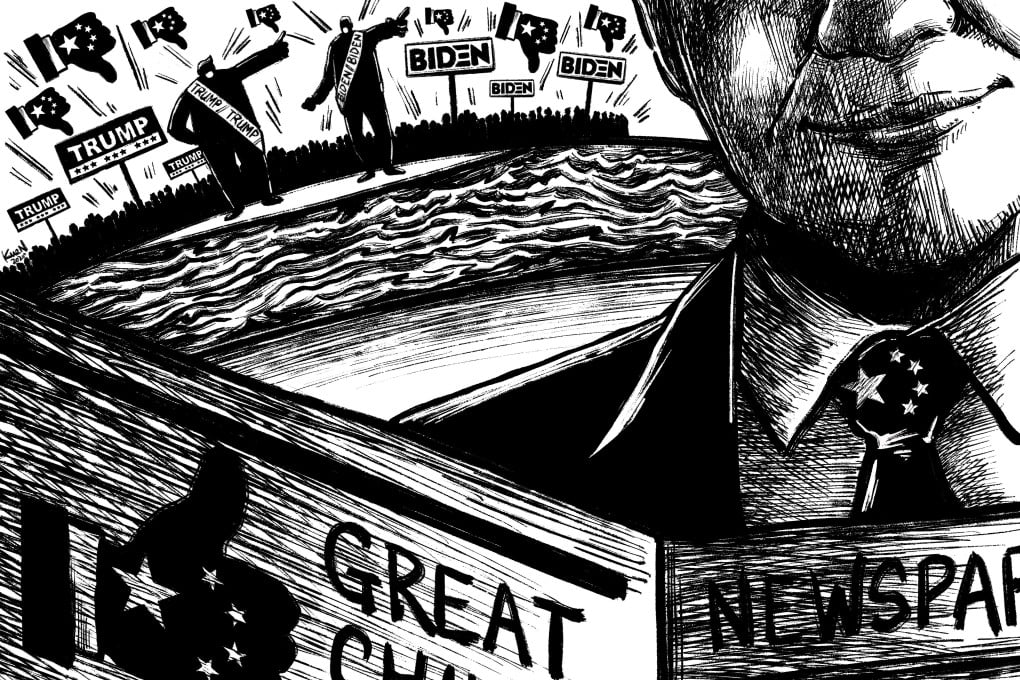Does China’s one-party system blind it to why it’s a US election issue?
- Claim that coronavirus containment was a victory for Chinese governance implies a contrast with the US political system and its response
- But some of China’s actions have been poorly received internationally, attracting scepticism about its credibility as a leading world power

As voters in the United States prepare for the presidential election in November, the South China Morning Post is exploring the potential ramifications for China. The latest part of the US election series looks at whether China’s political system serves it as well abroad as it says it does at home.
“The advantages of socialism with Chinese characteristics,” he declared, “provide a fundamental guarantee that the country withstands risks and challenges, and enhances its governance efficiency.” It is proven, he said, by Covid-19.
Yet while China boasts that its one-party system allowed it to suppress a deadly virus by any means necessary, experts say that very system, entailing authoritarian rule, censorship and an iron grip on the flow of information, has prevented Beijing seizing the moment to rise from the pandemic as a credible world leader while Washington struggles.

03:07
Wuhan pool party shows China's ‘strategic victory’ over Covid-19, Beijing says
“The Chinese have told themselves a story about why American attitudes have soured towards China,” said Daniel Russel, a former assistant secretary of state who advised the then president Barack Obama on East Asia issues. “And in the story they tell themselves, it’s a function of things that have nothing to do with China.”
